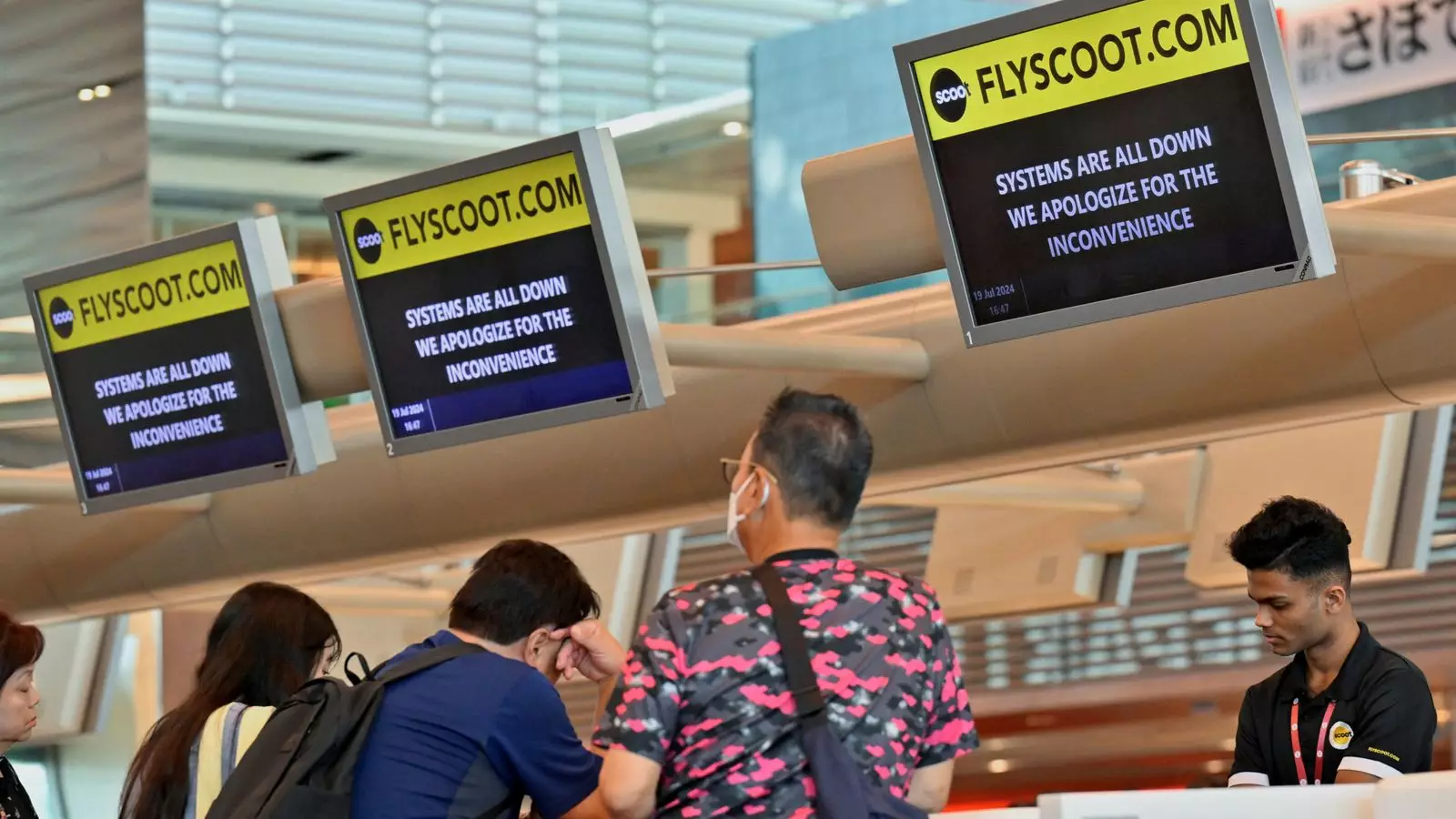The recent global IT outage has wreaked havoc on transport networks worldwide, particularly in the aviation industry. Major airports such as London Heathrow, Singapore’s Changi Airport, Schipol Airport in Amsterdam, and Melbourne Airport in Australia have all been affected. Passengers have been faced with check-in and security problems as online systems powered by Microsoft have shut down.
Notably, as of 11am (UK time) on Friday morning, a staggering 1,167 flights had been cancelled globally. This number is expected to rise as the situation unfolds. Airlines like American Airlines, Delta Airlines, and United Airlines in the US have grounded all flights due to communication issues. In Europe, passengers at Amsterdam’s Schipol Airport are experiencing delays averaging 78 minutes. Some airports, such as Belfast International Airport, have resorted to manual systems like whiteboards to provide flight information.
Individual stories of travel woes have emerged, like that of Anna at Berlin airport who found out her flight to Croatia was cancelled upon arriving at the terminal. At UK airports like Edinburgh and Gatwick, long queues and delays have become the norm. Passengers are enduring hours of waiting, with scenes of chaos and frustration prevailing throughout the terminals.
The Rail Network Crisis
The IT outage has not spared the railway industry, with 14 companies under the Rail Delivery Group feeling its impact. Operators like Avanti, c2c, Gatwick Express, and Great Northern are just a few of those affected. National Rail has reported issues “across the entire network,” with some operators unable to access driver diagrams and potential cancellations looming.
Key systems, such as real-time customer information platforms and ticket machines, have also been disrupted. In response, affected customers are being permitted to use their tickets on alternative services like the London Underground and buses in London at no extra cost. Despite the challenges, Network Rail assures passengers that the majority of the rail network remains operational.
An Unprecedented Crisis
The widespread IT outage sweeping across transport networks globally has created an unprecedented crisis for both air travel and the railway industry. The domino effect of cancellations, delays, and operational challenges has left passengers stranded, frustrated, and uncertain about their journeys.
Authorities like Transport Secretary Louise Haigh are acknowledging the severity of the situation and are working tirelessly with industry stakeholders and government counterparts to address the issue. While there are no known security threats at present, the sheer scale of the disruption raises concerns about the vulnerability of modern transport systems to technological failures.
As the chaos continues to unfold, it is imperative for transport operators to strengthen their IT infrastructure, implement robust backup systems, and enhance their crisis management protocols. The events of this global IT outage serve as a stark reminder of the importance of preparedness and resilience in the face of unforeseen challenges in the transport sector.
The current crisis in transport underscores the fragility of our interconnected systems and the urgent need for proactive measures to mitigate the impact of such disruptions in the future. It is through collaboration, innovation, and a commitment to operational excellence that the transport industry can navigate through these turbulent times and emerge stronger on the other side.



Leave a Reply